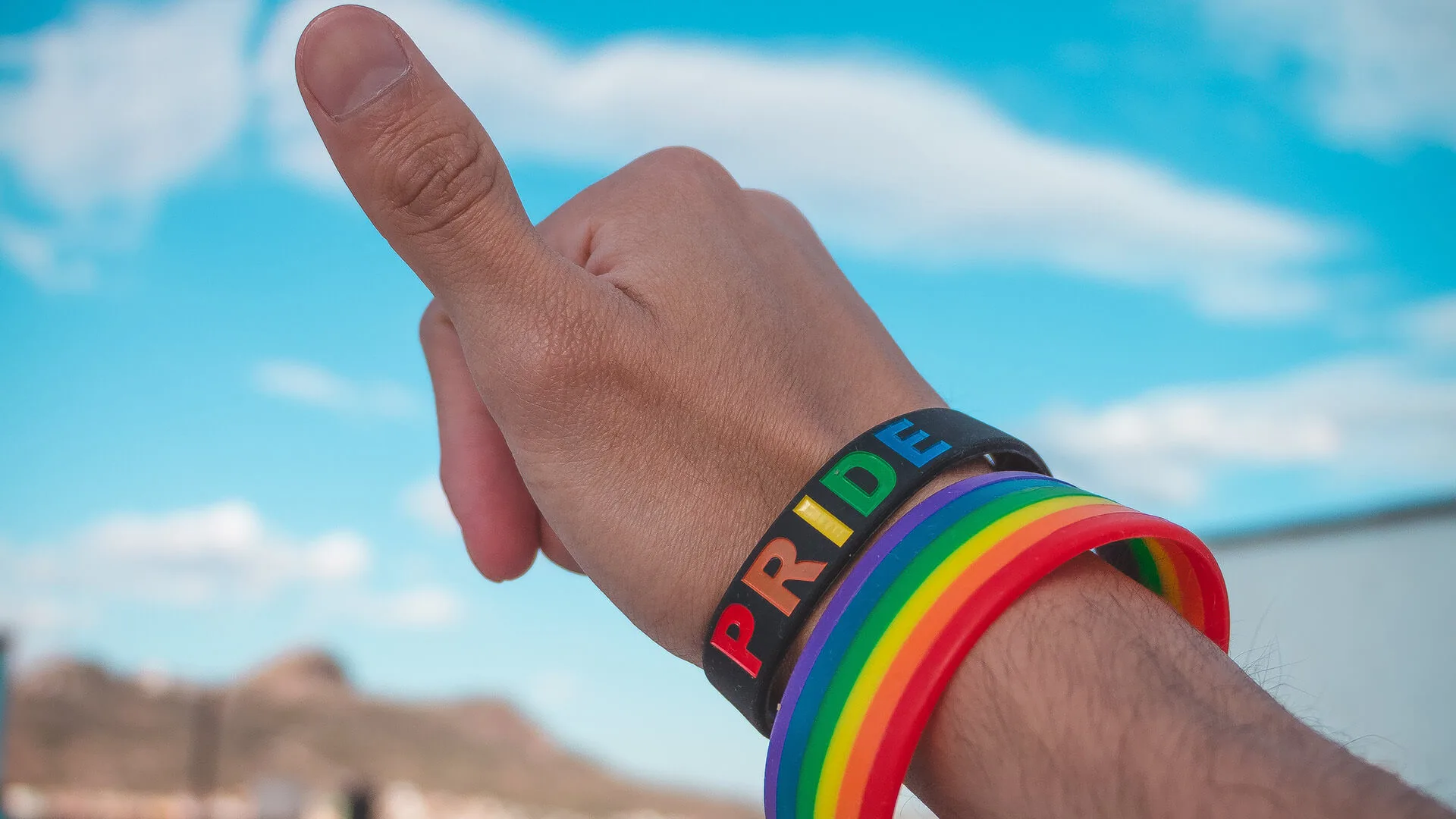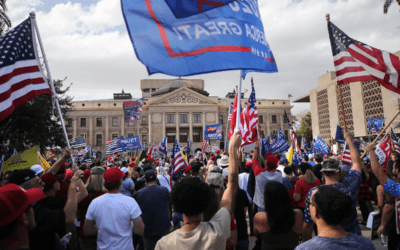
Photo by Eduardo Pastor
“By passing this nondiscrimination policy tonight, you will make it possible for me … to come home and be a part of Mesa’s vibrant future.”
Michael Soto, the executive director of Equality Arizona and a transgender man, said he didn’t feel he and his family could live the lives they wanted to in Mesa.
But he said a newly approved nondiscrimination ordinance could allow people like him who moved away to feel safe coming back.
“As a transgender man, I have known for many years that I cannot make a life for myself and my family in Mesa, but tonight, your vote will change that,” Soto said. “By passing this nondiscrimination policy tonight, you will make it possible for me and thousands of other LGBT people to come home and be a part of Mesa’s vibrant future as a city where everyone knows they will be treated fairly and have the same opportunity to live, work, and raise families.”
Mesa City Council voted 5-2 Monday night to pass the ordinance, which prohibits discrimination in public accommodation, housing, and employment, based on “race, color, ethnicity, national origin, age, disability, religion, sex, sexual orientation, gender, gender identity, veteran’s status, marital status, and familial status.”
The new policy, effective June 29, makes Mesa the seventh city in Arizona to have an anti-discrimination measure on the books. The others are Flagstaff, Phoenix, Sedona, Tempe, Tucson, and Winslow. There is no statewide law banning discrimination based on sexual orientation and gender identity.
Multiple members of the public and councilmembers who commented during the Monday vote became emotional when talking about the ordinance coming to pass after fighting for it for years.
Councilmember David Luna said he could remember conversations about a nondiscrimination ordinance for the city going back as far as 1998. The Mesa Human Relations Advisory Board first requested the city consider such an ordinance in 2014.
“It’s had its day, and we need to pass it,” Luna said while explaining his “yes” vote.
Newly-elected Councilmember Julie Spilsbury said she received intense pressure from people who voted for her to oppose the ordinance. But in the end, she said, she had to go with what she felt was right.
“The hate that I have received this week has helped me empathize and just see the smallest glimpse of what the LGBT community has felt like,” Spilsbury said during the meeting. “I don’t begin to understand the why of being transgender, but I have listened to their stories. I have felt their pain. They are a vulnerable group in our community, and I want to be part of a community that stands up for them.”
A Measure for Safety
Advocates for LGBTQ communities told councilmembers that having such a measure in writing helped them feel safer in their daily lives.
Other opponents of the measure said it wrongly implied that Mesa was not already a welcoming place and looked to solve a problem that doesn’t exist.
Christiana Hammond, a transgender woman, mom, and director of business operations for advocacy group Equality Arizona, said that that’s clearly not the case for people like her.
“If you’ve never seen someone’s eyes glare at you from across a crowded restaurant after figuring out why your voice is a little different, or have never watched someone’s smile turn cold after a simple hello, then you probably wouldn’t understand what this problem is,” Hammond told councilmembers. “If you’ve never been groped or manhandled by someone who felt that you owed them for not beating you up instead, then you don’t know this problem. If you feel safe in most public places in Mesa, then you don’t know this problem. For people like me, this is a real problem, and this ordinance is a real solution to it.”
A 2020 American Progress study found that across the US, more than one in three people who identify as LGTBQ and more than three in five who identify specifically as transgender said they faced discrimination in the past year.
More than half of respondents said they experienced discrimination in public spaces, and 36% said they were discriminated against in their workplace.
More than a third of respondents said they felt discrimination moderately or significantly affected their ability to rent or buy a home.
Not a Bathroom Bill
Opponents of the ordinance often brought up two other concerns: that it would allow men in women’s restrooms and changing rooms, as well as on women’s sports teams.
However, the ordinance does not apply to single-sex sports leagues or “single-sex designated areas of a place of public accommodation.”
Supporters of the ordinance emphasized that invasions of privacy or harassment in these environments are illegal now and would still be prosecuted if the ordinance were passed.
Advocates also pointed out that Arizona’s other cities that adopted nondiscrimination ordinances have not seen any of these fears come to fruition.
A 2014 report from Media Matters echoed this point on a national level.
“Law enforcement officials, human rights workers, and sexual assault victims advocates have dismissed this argument as ‘beyond specious,’” the report states. “In states and cities where non-discrimination laws have been in place for years experts have found no evidence linking these laws to sexual assault or misconduct in public restrooms.”
Room for More Protections
Mesa’s nondiscrimination ordinance didn’t satisfy all LGBTQ advocates.
Bridget Sharpe, spokesperson for the Arizona branch of the Human Rights Campaign, said the group was disappointed in the exceptions included in the ordinance.
Besides single-sex sports teams and public accommodations, the measure also excludes any “religious corporation, association or society,” as well as religious educational institutions.
“We hoped that Mesa would do better than this and encouraged Mayor Giles over a long period of time to fully protect LGBTQ Mesans from discrimination in hospitals, food banks, and other services,” Sharpe said in a statement to The Arizona Republic.
“In fact, this ordinance treats LGBTQ people differently than other people in Mesa and these swiss cheese protections are just a half-measure when LGBTQ Mesans deserve more. We call on the mayor and city council to close the gap in protections and ensure that all goods and services are open to every Mesa resident.”
Support Our Cause
Thank you for taking the time to read our work. Before you go, we hope you'll consider supporting our values-driven journalism, which has always strived to make clear what's really at stake for Arizonans and our future.
Since day one, our goal here at The Copper Courier has always been to empower people across the state with fact-based news and information. We believe that when people are armed with knowledge about what's happening in their local, state, and federal governments—including who is working on their behalf and who is actively trying to block efforts aimed at improving the daily lives of Arizona families—they will be inspired to become civically engaged.


He said what? 10 things to know about RFK Jr.
The Kennedy family has long been considered “Democratic royalty.” But Robert F. Kennedy, Jr.—son of Robert F. Kennedy, who was assassinated while...

Here’s everything you need to know about this month’s Mercury retrograde
Does everything in your life feel a little more chaotic than usual? Or do you feel like misunderstandings are cropping up more frequently than they...

Arizona expects to be back at the center of election attacks. Its officials are going on offense
Republican Richer and Democrat Fontes are taking more aggressive steps than ever to rebuild trust with voters, knock down disinformation, and...

George Santos’ former treasurer running attack ads in Arizona with Dem-sounding PAC name
An unregistered, Republican-run political action committee from Texas with a deceptively Democratic name and ties to disgraced US Rep. George Santos...





